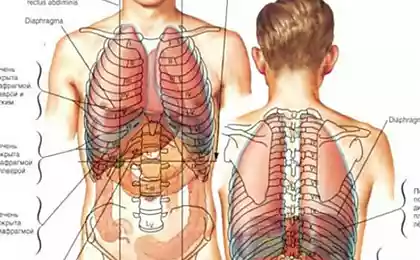282
6 Reasons Why You're Sad, Even If Life Is All Right

Sometimes, even on the brightest days, we are covered with inexplicable sadness.
Do you know the feeling when life goes on as usual, everything seems to be fine – a good job, a loving family, a stable financial situation – but in spite of all this, an incomprehensible sadness has settled inside? In psychology, this phenomenon is called the “well-being paradox” – a situation where external well-being does not correspond to the internal emotional state.
This article will help to understand the causes of such emotional dissonance and offer practical approaches to restoring emotional balance.
1. Biochemical Imbalance: When Hormones Are to Blame
One of the least obvious but most fundamental causes of unexplained sadness is the biochemistry of our bodies. Our mood is largely determined by the complex interaction of neurotransmitters – substances that transmit signals between neurons in the brain.
An imbalance of neurotransmitters such as serotonin, dopamine and norepinephrine is directly related to mood disorders. Serotonin is often called the “hormone of happiness”, and its deficiency can cause a state of depression even in the absence of external negative factors.
In addition to neurotransmitters, other biochemical factors influence our mood:
- Hormonal fluctuations changes in hormonal levels can significantly affect the emotional state;
- Deficiency of B and D vitamins play an important role in regulating mood;
- Thyroid problems Both hypothyroidism and hyperthyroidism can manifest through decreased mood.
How to deal with this:
- Pass a comprehensive examination, including checking the level of vitamins and hormones;
- Increase the consumption of foods rich in tryptophan (bananas, dark chocolate, nuts);
- Regularly engage in physical exercises - they stimulate the production of endorphins.
2. Existential emptiness: when there is everything, but there is no meaning

Even with material wealth, a person can experience existential emptiness.
In his book Man in Search of Meaning, psychiatrist Victor Frankl described the existential vacuum as a state in which a person sees no meaning in his life. Paradoxically, it is the attainment of material well-being that can lead to this state – when basic needs are met, we begin to ask deeper questions.
Many studies confirm that material well-being has a limited effect on happiness. After reaching a certain level of income that ensures a comfortable life, a further increase in material goods no longer brings a proportional increase in life satisfaction - the Easterlin paradox.
Existential emptiness can manifest through:
- sense of meaninglessness of everyday activities;
- Feeling stuck in the wheel of everyday life
- Lack of inspiration even when achieving goals.
How to deal with this:
- Practice mindfulness and meditation to connect with inner values.
- Ask yourself, “What is important to me in life other than material well-being?”
- Find your calling through volunteering or participating in socially significant projects.
3. Suppressed emotions: when the past does not let go
Sometimes the cause of unmotivated sadness lies in unworked traumatic experiences and suppressed emotions. Our mental apparatus is designed in such a way that repressed emotions do not disappear without a trace - they continue to affect our state.
According to the theory of psychoanalysis, repressed negative experiences can manifest as diffuse anxiety or causeless sadness. Studies show that emotional memory is stored in the structures of the limbic system of the brain and can be activated even without conscious memory of the traumatic event.
Signs of suppressed emotions:
- Emotional flashes that seem disproportionate to the situation
- Repeated nightmares or disturbing dreams
- Physical symptoms such as tension in the body in the absence of medical causes.
How to deal with this:
- Practice regular journaling, writing down your thoughts and feelings without censorship.
- Use techniques of somatic experience of emotions – pay attention to bodily sensations;
- Consider working with a therapist who specializes in trauma.
4. Social exclusion: when connections are superficial
Humans are social creatures, and the quality of our relationships directly affects our emotional well-being. Even with a wide range of acquaintances, it is possible to experience loneliness if these relationships lack depth and emotional intimacy.
The Harvard Study of Adult Development, which has been going on for more than 80 years, found that the key predictor of happiness and longevity is not a successful career or material well-being, but the quality of close relationships. At the same time, it is not so much the quantitative side of social contacts that is important as their depth.

Social alienation can cause feelings of loneliness even among people.
How to deal with this:
- Practice mindful communication – be fully present in the conversation.
- Develop the skill of emotional vulnerability – gradually share your true feelings.
- Initiate deeper conversations beyond small talk.
5. Comparison with others: when social networks form unrealistic expectations
In the age of social media, we are constantly under attack by information that presents idealized versions of other people’s lives. This creates a basis for constant comparison and can cause a feeling that your own life is not bright enough or happy enough.
Research shows that frequent social media use is correlated with increased levels of anxiety and depression. The phenomenon has been dubbed the “social media paradox” – tools designed to connect people often lead to feelings of isolation.
How to deal with this:
- Practice digital detoxification – regularly have days without social media
- Subscribe from accounts, viewing which causes negative emotions;
- Keep a gratitude journal focusing on the positive aspects of your life.
6. Unacknowledged Burnout: When the Body Says Stop
Chronic fatigue and emotional exhaustion can disguise as unexplained sadness. The modern rhythm of life with its constant availability and multitasking creates ideal conditions for the development of burnout.
According to the WHO definition, burnout is characterized by a feeling of exhaustion or energy decline; psychological distance from their work; decreased professional effectiveness. At the same time, burnout can develop not only in the professional sphere, but also in other areas of life.
How to deal with this:
- Set clear boundaries between work and rest.
- Practice strategic “doing nothing” – regularly set aside time for total relaxation.
- Pay attention to the quality of sleep – create optimal conditions for a good rest.
Conclusion: From Awareness to Action
Unexplained sadness in external well-being is a signal that an important need is not being met. Recognizing the true cause of this condition is the first step to overcoming it.
It is important to remember that periods of sadness are a normal part of the human experience. However, if the state of depression becomes chronic or seriously affects the quality of life, you should consult a mental health professional.
Remember, your emotions are a valuable information system that signals important internal processes. Paying attention to these signals, you not only overcome unmotivated sadness, but also reach a qualitatively new level of self-understanding.
Glossary of terms
Neurotransmitters
Chemicals that transmit signals between brain neurons. The main neurotransmitters affecting mood include serotonin, dopamine, norepinephrine.
The existential vacuum
A term coined by Viktor Frankl for a state of inner emptiness and lack of meaning in life.
Easterlin's paradox
An economic-psychological phenomenon according to which an increase in income and material well-being beyond a certain level does not lead to a corresponding increase in subjective happiness.
limbic system
The complex of brain structures responsible for the regulation of emotions, the formation of emotional reactions and emotional memory.
Burnout
A syndrome that results from chronic stress in the workplace or other areas of life, characterized by emotional exhaustion, cynicism, and reduced performance.
5 Indian thinkers whose names you need to know
Generations of XX-XXI century: from the Great to Alpha - who are they?























